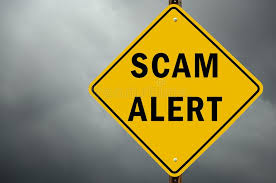U.S. Attorney and IRS Advise Caution
Mike Seals - April 14, 2020 11:08 am

U.S. ATTORNEY AND IRS ADVISE CAUTION REGARDING IRS ECONOMIC IMPACT PAYMENTS
OKLAHOMA CITY, OK – The Internal Revenue Service (IRS) will soon begin making COVID-19 economic impact payments. For most Americans, this will be a direct deposit into your bank account. For the unbanked, elderly or other groups who have traditionally received tax refunds via paper check, they will receive their check in this same manner.
United States Attorney Timothy J. Downing and IRS-Criminal Investigation (IRS-CI) Special Agent in Charge Tamera Cantu want to warn local Oklahomans that criminals are well aware of these payments and will be actively attempting to steal these funds when they are most needed. Unsolicited phone calls, emails, text messages, or other communications pretending to be from the IRS are likely a scam.
“We will work with IRS-CI to vigorously pursue anyone who tries to cheat or scam Oklahomans out of their much-needed stimulus money,” said U.S. Attorney Downing. “Any fraudster who is thinking about engaging in related criminal conduct should think again. We will hold them accountable to the fullest extent possible.”
IRS-CI Special Agent in Charge Tamera Cantu of the Dallas Field Office offers the following information and tips to spot a scam and how citizens can report fraudulent activities:
- The IRS will NOT call and ask you to verify your payment details. Do NOT give your bank account, debit account, or PayPal account information to anyone—even if someone claims it’s necessary to get your check. It’s a scam.
- If you receive a call, do NOT engage with scammers, even if you want to tell them that you know it’s a scam. Just hang up.
- If you receive texts or emails claiming that you can get your money faster by sending personal identifying information or clicking on links, delete these texts and emails. Do NOT click on any links in those texts or emails.
- If you receive a “check” for an odd amount (especially one with cents), or a check that requires you to verify the check online or by calling a number, it’s a scam.
Special Agent in Charge Cantu warns the public, “As the agency responsible for issuing economic impact payments, the IRS unfortunately expects some bad actors to execute fraud schemes in an attempt to take advantage of the situation. Be aware that unsolicited contact from non-IRS sources could be scams and do not become a victim. Every taxpayer needs to exercise caution when choosing a return preparer or tax professional to ensure their personal and other privileged information is safeguarded.”
- Remember, scammers change tactics. Callers can be aggressive and threatening. Do not be bullied into disclosing personal information or in making any payment.
- You can get the most up-to-date information directly from the IRS at gov/coronavirus.
- Residents of Western Oklahoma can contact the local IRS-CI field office to report violations and suspected fraud at [email protected].



